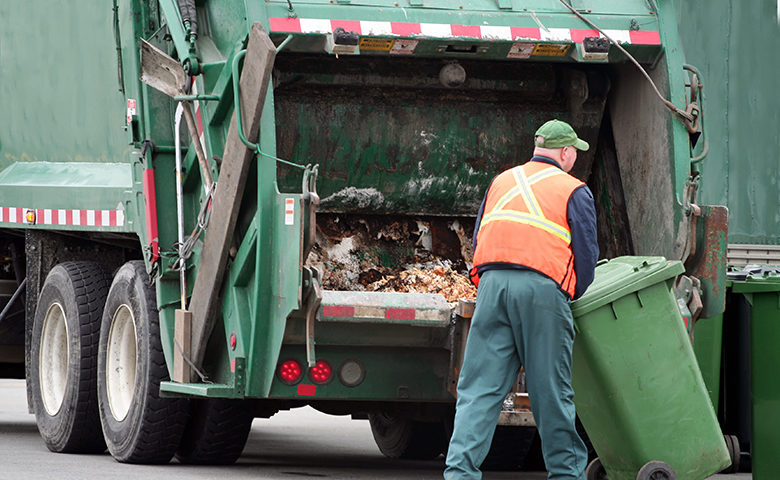Every day, waste collectors face a number of hazards that range from vermin to chemical poisoning. In fact, refuse and recyclable materials collection is one of the most dangerous jobs in the U.S. and most employees in this industry are likely to get injured at some point in their working lives.
One of the most common occupational issues for waste collectors is ergonomic injuries, such as back strain or musculoskeletal injuries, and improper lifting. Here’s a closer look at each of these problems, as well as several steps that safety professionals can take to minimize their impact.
Improper lifting techniques
Handling heavy objects repeatedly and without using proper lifting techniques can result in a number of injuries, including hernias, spinal damage, sprains, strains and many others.
Proper back safety training can remind workers about the importance of manual handling safety. Keep in mind that any training and information on the proper lifting techniques is going to erode over time and refresher sessions can help employees maintain good posture and lift properly.
Slips, trips and falls
Each year, many waste collectors are injured when they slip, trip or fall. The weather can be an important factor in these incidents, as the workers perform their jobs all year round. Sometimes waste collectors have to work in snow, ice or rain, and other times they have to fight against strong winds and other adverse weather conditions.
This is why proper footwear is a must. Waste collectors should always wear non-slip shoes that can provide them the best possible grip for the conditions. The shoes are there to protect the workers if they step on a patch of ice or other slippery surface and lose their footing.
Waste collectors should also be mindful of the state of the running boards, ladder rungs and any other surfaces they step on regularly. If these become wet or slick, the risk of slipping and falling can increase drastically.
Hand safety
Consider a worker with no protective gloves on their hands as they lift a heavy refuse container in the morning. If the container is covered in dew, rain, snow or if it leaks something from the inside, it becomes slippery. Trying to lift or manipulate a slipping object can lead to serious injuries because sudden movements can not only result in a strain, sprain or even a hernia but can also cause the person to trip and fall.
This is one of the reasons why all workers should be provided with good-quality work gloves that will allow for a good grip on all objects they pick up and handle. Gloves will also protect workers from cuts, contusions and potential infection that may result from hand injuries. The gloves should also be regularly replaced when torn, worn out or degraded.
Human factors
Human factors training will help workers to recognize the hazards of their work. For example, it may help waste collectors better recognize when the weather has increased the risk of slipping. It will also allow workers to notice when human factors such as fatigue or frustration may be putting them in danger of injury. As a result, workers will be more likely to do things like step off the truck instead of jumping off, and slow down if they find themselves rushing.
Educating employees on human factors can also prevent ergonomic issues. For example, fatigue, rushing or complacency could easily cause workers to ignore correct lifting techniques, but if they are provided with tools to address these states of mind then they will be more likely to lift correctly.
This is not to say that human error alone is responsible for all injuries—but human factors training is a valuable addition to any safety program that’s designed to protect waste collectors.
Waste collectors have a challenging job and it’s vital that they are given the right tools and training to perform it safely. Simply handing them some gloves is not enough. Neither is telling them the proper lifting techniques and then expecting them to do it correctly every single time thereafter. But providing proper PPE and providing human factors training can help reduce injuries and keep waste collectors safe.

